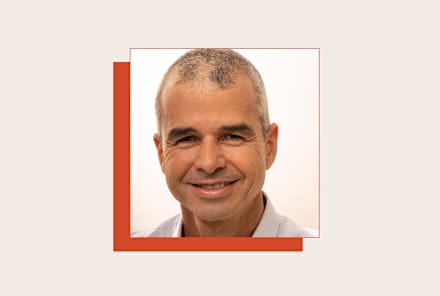Advertisement
What We Can Learn From The World's First "Dementia Village"


Dementia cases continue to rise on a global scale; in fact, researchers predict there will be 3 million new cases this year alone. With a growing aging population and increased rates of neurodegenerative diseases like Alzhiemer’s and other forms of dementia, we need to rethink the institutions that care for our elderly citizens.
The Netherlands is way ahead of us in this regard—since 2009, a community called The Hogeweyk® has paved the way for innovative, deinstitutionalized dementia care that can be best described as a “dementia village.”
Reimagining a model of care for dementia patients
At first glance, The Hogeweyk® looks like any other Dutch neighborhood. It has a grocery store, movie theater, barber shop, restaurant, residential buildings, and plenty of public green spaces. Each resident gets their own private room and shares common areas in their home with five or six other residents.
Although the organization has doctors, nurses, psychologists, physiotherapists, and other caregivers working around the clock, they blend into the community as “normal” people (no white lab coats to be seen). All employees—including grocery store workers, waiters, etc.—are trained in dementia care to ensure that each resident is cared for in the highest regard.
Thanks to the community’s unique design, which prioritizes safety and accessibility for individuals with severe dementia, residents are able to explore the village as they please. They can choose to have complete privacy in their rooms, socialize in public areas with large groups, and enjoy every level of socialization in between.
A far cry from the sterile, clinical environments of nursing homes and other institutions, the dementia village care concept helps residents maintain their independence and lead relatively normal and fulfilling lives, despite their memory loss.
It also prioritizes socialization and community, which is critical for compassionate dementia care. Social isolation and dementia go hand in hand—and once symptoms progress, it can be much tougher for dementia patients to recognize their friends and family members, let alone maintain a sense of normalcy in their communities. Dementia villages give residents a safe, engaging space to socialize with one another.
Other ways to support a loved one with cognitive decline
While The Hogeweyk® has inspired some American dementia care organizations to redesign their traditional layouts and update care models, no true dementia villages exist in the U.S. (yet).
Until we have similar options for dementia patients in the U.S., here are some things you can do to support your friend or family member that has cognitive decline.
Encourage them to:
- Book an appointment with their doctor—early diagnosis can optimize a patient’s treatment plan and increase their life expectancy (and enhance their quality of life)
- Utilize nutritional tools whenever possible, such as maintaining a nutrient-dense, well-balanced diet and taking targeted supplement ingredients for brain longevity support (e.g., citicoline, which has been clinically shown to improve cognitive impairment)
- Stay active by taking walks around the neighborhood or trips to the park with friends
- Continue to socialize within their community, whether that means joining a gardening club or getting together with family members more often
- Avoid smoking
- Get plenty of deep, restorative sleep
The takeaway
We need a new care model to support the growing global dementia population. Dementia villages are an innovative and compassionate care concept designed to help people with Alzheimer’s and dementia maintain their sense of independence and normalcy, socialize with others, and find joy in everyday activities in a safe and supportive environment.



















